Related Research Articles
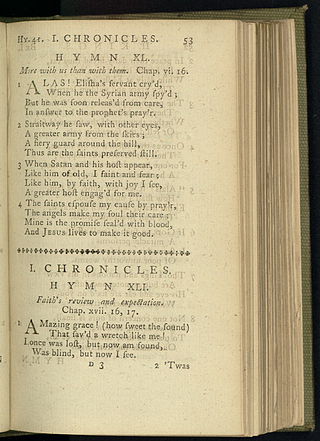
"Amazing Grace" is a Christian hymn published in 1779, written in 1772 by English Anglican clergyman and poet John Newton (1725–1807). It is possibly the most sung and most recorded hymn in the world, and especially popular in the United States, where it is used for both religious and secular purposes.

Michael Whitaker Smith is an American musician who has charted in both contemporary Christian and mainstream charts. His biggest success in mainstream music was in 1991 when "Place in This World" hit No. 6 on the Billboard Hot 100. Over the course of his career, he has sold more than 18 million albums.

Gospel music is a traditional genre of Christian music and a cornerstone of Christian media. The creation, performance, significance, and even the definition of gospel music varies according to culture and social context. Gospel music is composed and performed for many purposes, including aesthetic pleasure, religious or ceremonial purposes, and as an entertainment product for the marketplace. Gospel music is characterized by dominant vocals and strong use of harmony with Christian lyrics. Gospel music can be traced to the early 17th century.

William Franklin Graham Jr. was an American evangelist, ordained Southern Baptist minister, and civil rights advocate, whose broadcasts and world tours featuring live sermons became well known in the mid- to late 20th century. Throughout his career, spanning over six decades, Graham rose to prominence as an evangelical Christian figure in the United States and abroad.

"Away in a Manger" is a Christmas carol first published in the late nineteenth century and used widely throughout the English-speaking world. In Britain, it is one of the most popular carols; a 1996 Gallup Poll ranked it joint second. Although it was long claimed to be the work of German religious reformer Martin Luther, the carol is now thought to be wholly American in origin. The two most common musical settings are by William J. Kirkpatrick (1895) and James Ramsey Murray (1887).
Tillit Sidney Teddlie was an American singing school teacher, composer, publisher, and minister of the Church of Christ.

George Beverly Shea was a Canadian-born American gospel singer and hymn composer. Shea was often described as "America's beloved gospel singer" and was considered "the first international singing 'star' of the gospel world," as a consequence of his solos at Billy Graham Crusades and his exposure on radio, records and television. Because of the large attendance at Graham's Crusades, it is estimated that Shea sang live before more people than anyone else in history.
"In the Garden" (sometimes rendered by its first line "I Come to the Garden Alone" is a gospel song written by American songwriter C. Austin Miles, a former pharmacist who served as editor and manager at Hall-Mack publishers for 37 years. According to Miles' great-granddaughter, the song was written "in a cold, dreary and leaky basement in Pitman, New Jersey that didn't even have a window in it let alone a view of a garden." The song was first published in 1912 and popularized during the Billy Sunday evangelistic campaigns of the early twentieth century by two members of his staff, Homer Rodeheaver and Virginia Asher.

"Just as I Am" is a Christian hymn, written by Charlotte Elliott in 1835, first appearing in the Christian Remembrancer, of which Elliott became the editor in 1836. The final verse is taken from Elliott's Hours of Sorrow Cheered and Comforted (1836).

"The Old Rugged Cross" is a popular hymn written in 1912 by American evangelist and song-leader George Bennard (1873–1958).

"I Surrender All" is a Christian hymn, with words written by American art teacher and musician Judson W. Van DeVenter (1855–1939), who subsequently became a music minister and evangelist. It was put to music by Winfield S. Weeden (1847–1908), and published in 1896.
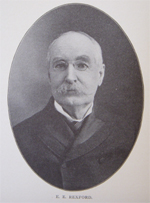
Eben Eugene Rexford was an American writer and poet, and author of lyrics to popular and gospel songs.
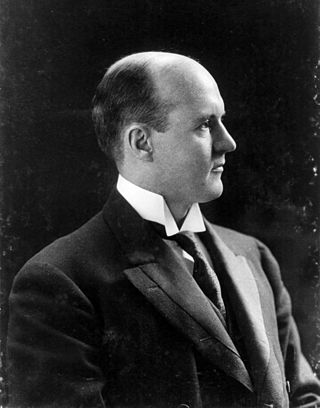
Charles McCallon Alexander a native of East Tennessee, was a popular nineteenth-century gospel singer who worked the evangelistic circuit for many years. Over the course of his ministry, he toured with R. A. Torrey and John Wilbur Chapman, most notably. In 1904, Alexander married Helen Cadbury, daughter of the Cadbury Chocolate Company president. She toured with him on the evangelistic circuit as a women's worker. Together they spread The Pocket Testament League around the world.
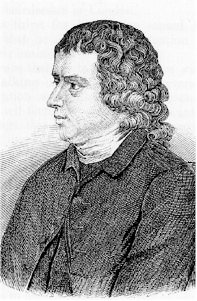
"Come Thou Fount of Every Blessing" is a Christian hymn written by the pastor and hymnodist Robert Robinson, who penned the words in the year 1758 at the age of 22.
"How Great Thou Art" is a Christian hymn based on an original Swedish hymn entitled "O Store Gud" written in 1885 by Carl Boberg (1859–1940). The English version of the hymn and its title are a loose translation by the English missionary Stuart K. Hine from 1949. The hymn was popularised by George Beverly Shea and Cliff Barrows during Billy Graham's crusades. It was voted the British public's favourite hymn by BBC's Songs of Praise. "How Great Thou Art" was ranked second on a list of the favourite hymns of all time in a survey by Christianity Today magazine in 2001 and in a nationwide poll by Songs Of Praise in 2019.

Wintley Augustus Phipps, Sr. is a Trinidadian-American singer, songwriter, record producer, minister, and founder of the U.S. Dream Academy, Songs of Freedom Publishing Company, and Coral Records Recording Company. He features a booming bass-baritone voice, usually singing inspirational gospel music. He is an ordained Seventh-day Adventist minister.

Sheila Walsh is a Scottish-born American contemporary Christian vocalist, songwriter, evangelist, author, inspirational speaker, and talk-show host.

To God Be the Glory is a hymn with lyrics by Fanny Crosby and tune by William Howard Doane, first published in 1875.

Edwin Othello Excell, commonly known as E. O. Excell, was a prominent American publisher, composer, song leader, and singer of music for church, Sunday school, and evangelistic meetings during the late nineteenth and early twentieth centuries. Some of the significant collaborators in his vocal and publishing work included Sam P. Jones, William E. Biederwolf, Gipsy Smith, Charles Reign Scoville, J. Wilbur Chapman, W. E. M. Hackleman, Charles H. Gabriel and D. B. Towner.
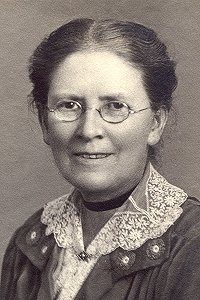
Ada Ruth Habershon was an English Christian hymnist and writer, best known for her 1907 gospel song "Will the Circle Be Unbroken?" for which the tune was composed by Charles H. Gabriel.
References
- ↑ Hall, J. H. Biography of Gospel Song and Hymn Writers. New York: Fleming H. Revell Co., 1914, pp. 349-354.
- ↑ Sutherland, Allan. Famous Hymns of the World: Their Origin and Romance. New York: Frederick A Stokes Company, 1906, revised edition 1923, pp. 373-374.
- ↑ Sanville, George W. Forty Gospel Hymn Stories. Winona Lake, IN: The Rodeheaver-Hall Mack Company, 1943, p. 10.
- ↑ Sutherland, Alan. op.cit., pp. 379-390.
- ↑ Sanville, op. cit.
- ↑ Patrick Millar (revised by James Rawlings Sydnor). The Story of the Church’s Song. Richmond, VA: John Knox Press, 1962, p. 171.
- ↑ Barrows, Cliff and Billy Graham. Crusader Hymns and Hymn Stories. Chicago: Hope Publishing Co. and Billy Graham Evangelistic Association, 1967, p. 139-140.